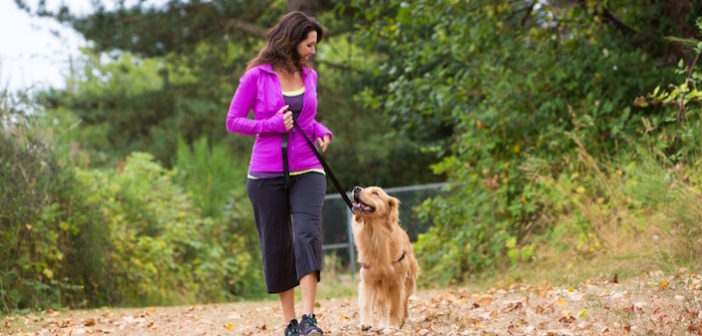(Featured image courtesy PRNewsFoto/Mars Petcare. All rights reserved.)
BRUSSELS, October 13, 2016 – An international study published in BMC Public Health has found dog walkers are physically active on more days of the week and dog walking can help people feel safer in their neighborhood.
The study carried out by Dr Hayley Christian from The University of Western Australia (UWA) in collaboration with the WALTHAM Centre for Pet Nutrition, part of Mars Petcare, is the first international study of its kind to consistently examine the relationship between dog walking, physical activity and people’s perception of safety in their community. More than 1000 dog owners from Perth, Australia and three US cities (San Diego, Nashville and Portland) were surveyed in the Pet Connections study.
The research found that people who walked their dog achieved at least 30 minutes of physical activity on more days per week than non-dog walkers, helping them to meet the World Health Organization recommendation of at least 150 minutes of physical activity per week.
The study also highlights the broader community benefits of pet ownership. Almost 60 per cent of dog walkers in Australia and the US reported feeling safer when walking with their dog and women who walked their dogs were more likely than men to feel safer.
“Particularly in US study sites, dog walkers had a greater feeling of security and perceived higher levels of neighborhood surveillance from dog walking than those studied in Perth,” said Dr Hayley Christian, from UWA’s School of Population Health. “This may be due to social and cultural differences in dog-keeping and exercise practices between the two countries”.
The study highlights the physical and social benefits for individuals and communities, and the need to integrate dog walking into health programs and policies.
__
About the WALTHAM Centre for Pet Nutrition
Celebrating over 50 years of innovative science, the WALTHAM Centre for Pet Nutrition, part of Mars, Incorporated, serves as a leading scientific authority in advancing the frontiers of research into the nutrition and health of companion animals.





